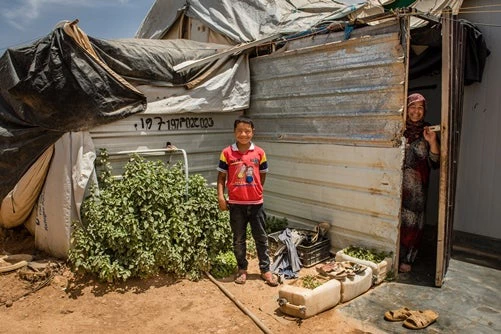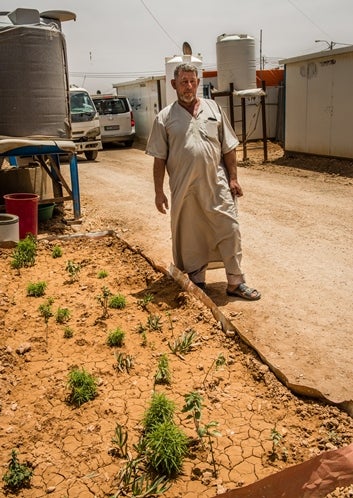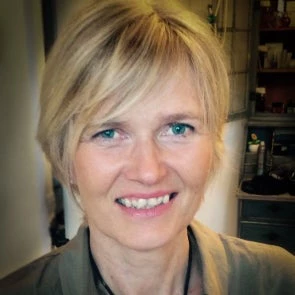
in Jordan. Photo Courtesy: Dorte Verner
Jasser, a 24-year-old Syrian man, and his family were forced to flee in 2012 because of the bombings. He lost his mother and sister, his house, car, and job. Before leaving Syria he was working in farming, processing and producing fruits and vegetables. Jasser and other displaced people like him are struggling to find jobs (and get visas), generate income, and gain an education. They all say they want to return home in the near future. They all say they want to work and keep their dignity.
Displaced Syrians bring skills, creativity, and entrepreneurial spirit to host communities . A few I spoke with in Cairo have opened restaurants and food stands selling tasty Syrian dishes like mahshi, kebab, nabulsiyah, and others. Some of these refugees were doing similar work in Syria, but others were not. A Damascus-style juice vendor told me he sold shoes back in Syria.
Jobs, Livelihoods, and Economic Integration
Unfortunately, this refugee crisis is not temporary . Most refugees do not expect to be displaced for long, but in reality displacement lasts about 17 years on average . As a result, there is a need to address longer-term development needs to complement short-term humanitarian assistance. Investing in agriculture is an effective long-term strategy to create jobs , build livelihoods, and create benefits for both the displaced and the communities that host them. This will in turn help refugees become productive contributors to society and reduce their financial and resource burden on host communities.
Displaced populations have an entrepreneurial spirit and want to work . Before migrating, they mostly lived in small rural towns and often worked in agriculture. People who used to farm want to apply their skills but often lack local access to land, knowledge, and resources. Providing this access is where the development community can make a difference. Beyond the obvious economic and nutritional benefits, this can also have important social and psychological benefits for displaced individuals.

Agriculture can provide benefits in both rural and urban settings . Arable land and water are scarce resources in the Middle East . New technologies and production strategies can be applied to reduce the land and water requirements for agriculture. “Frontier farming” provides fresh food by moving the farm closer to the market and allowing farmers to produce 365 days a year. Two promising examples of frontier agriculture technology include:
- Hydroponics – Also called “climate in a box,” allows farmers to grow crops up to four or five times faster than traditional field-based agriculture. Moreover, hydroponics can be fueled by solar energy and its crops are pesticide free.
- Vertical farms – These farms consist of several levels of crops and can turn small areas into highly productive agricultural spaces. Vertical farms are also faster growing and can be less damaging to the environment than traditional farms .
Research has also shown that producing high-value crops – like fruits and vegetables – is more profitable than producing traditional crops – like wheat. New frontier agricultural practices like hydroponics – growing plants in controlled environments with nutrient rich water and no soil – are very well suited for these high-value crops. They grow them faster and healthier than traditional soil plot agriculture. Training refugees in hydroponics and other frontier agricultural practices would improve food security, advance agricultural knowledge, and provide refugees with productive skills that can help them provide for their families and contribute to society.
Agricultural livelihoods in the Middle East have adapted to shocks for thousands of years . The first settlements in the world were farming communities in the Middle East . These communities have always coped with conflict, climate variability and change, and other challenges like the shift from agriculture to pastoralism. Likewise, the descendants of these communities – like Jasser and many other displaced Syrians and Iraqis – already rolled up their sleeves and are ready to get back to work. We just need to provide them with the skills and opportunities to do so.



Join the Conversation